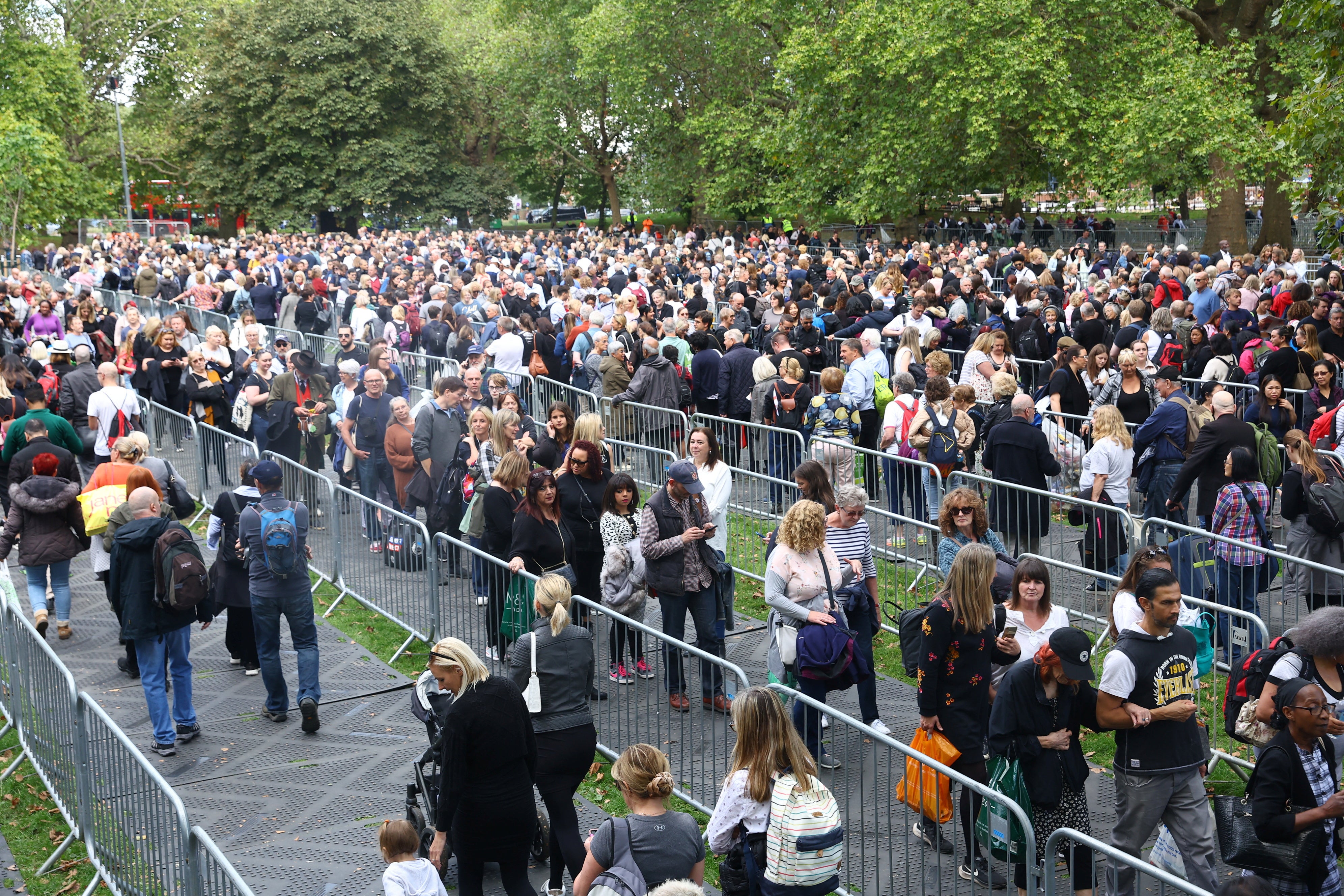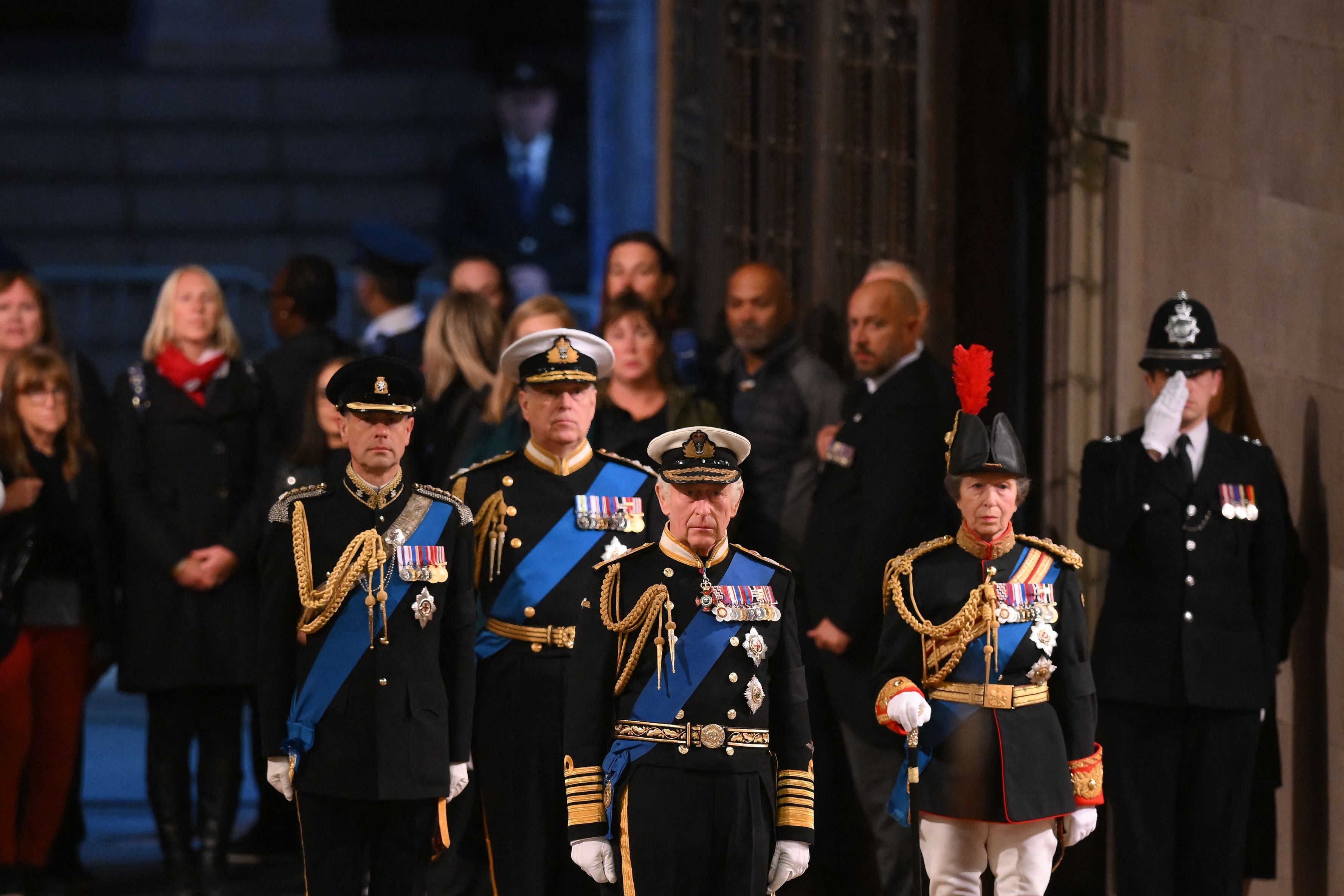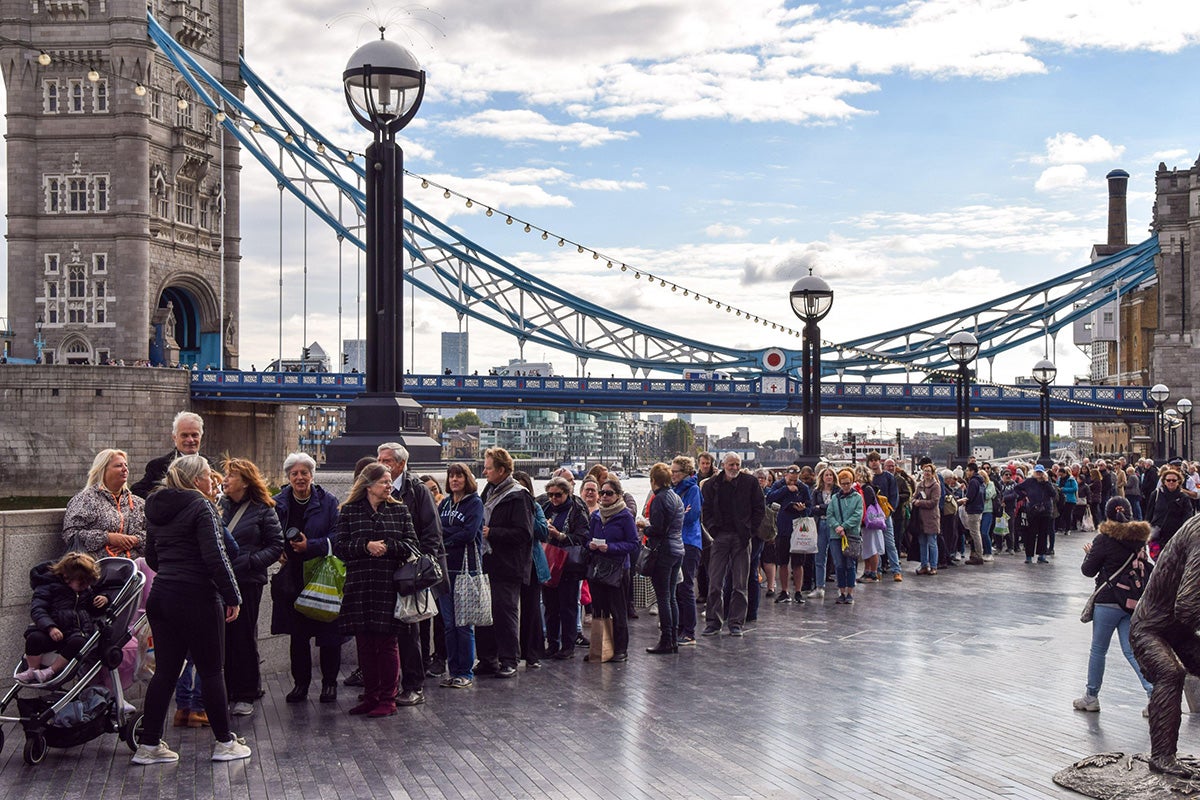Accessible queue to see Queen lying in state paused until Saturday
Line for those with disabilities currently on hold, with all current entry slots allocated
Your support helps us to tell the story
From reproductive rights to climate change to Big Tech, The Independent is on the ground when the story is developing. Whether it's investigating the financials of Elon Musk's pro-Trump PAC or producing our latest documentary, 'The A Word', which shines a light on the American women fighting for reproductive rights, we know how important it is to parse out the facts from the messaging.
At such a critical moment in US history, we need reporters on the ground. Your donation allows us to keep sending journalists to speak to both sides of the story.
The Independent is trusted by Americans across the entire political spectrum. And unlike many other quality news outlets, we choose not to lock Americans out of our reporting and analysis with paywalls. We believe quality journalism should be available to everyone, paid for by those who can afford it.
Your support makes all the difference.The accessible queue to see Queen Elizabeth II lying in state in London has been paused to new entrants until Saturday, as waiting times to view the late monarch’s coffin topped 22 hours.
The line organised for those with disabilities or long-term conditions rendering them unable to queue for long periods was paused on Friday afternoon, after hitting capacity.

It is closed to new mourners until midday on Saturday, with all entry slots having been allocated up until this time, after which point more will be made available, the government said.
Those who already have wristbands and entry times will still be able to view the Queen’s coffin, according to the Department for Digital, Culture, Media and Sport (DCMS).
Access to Westminster Hall, where the Queen’s coffin is being housed, will shut to the public at 6.30am on Monday. The Queen is due to be buried later the same day after a lavish state funeral in the capital that morning.
A statement on the DCMS Twitter page, which has been providing live updates on queuing lengths and waiting times, said: “The accessible queue is paused and will resume at midday tomorrow.
“All entry slots have been allocated up until this time, when more will be made available. For everyone’s comfort, please do not attempt to join the accessible queue before midday tomorrow.”

The main queue, currently stretching all the way from Westminster to Southwark Park, remains open – despite the government estimating those mourners face waiting times of 22 hours during what it warns will be a cold night.
That line was also paused for six hours on Friday as it was announced at 9:50am that Southwark Park had “hit capacity”.
But the bid to stop new people from joining the queue appeared to fail, as mourners simply formed a new line on Jamaica Road and waited to merge with the existing queue – causing the gates to Southwark Park to be reopened.

Those who reached the front of the queue during a short period on Friday evening were witness to a vigil held at the Queen’s coffin by her four children, King Charles III, Princess Anne, Prince Edward and Prince Andrew.
Two lines of mourners filed solemnly passed as the siblings held what is known as the Vigil of the Princes – a ritual started by the late Queen’s uncle, King Edward VIII, when his three brothers joined him in military uniform on 28 January 1936 to watch over the coffin of their late father, King George V, in Westminster Hall.
Following her death at the age of 96 last Thursday, the Queen’s coffin travelled from Balmoral Castle to Edinburgh, where it lay in state in St Giles’ Cathedral for 24 hours before making a final journey to Buckingham Palace on Tuesday.
Prince William and Prince Harry were among those who joined their father Charles in following the Queen’s coffin by foot on Wednesday as it was brought through central London to Westminster Hall, the oldest building on the parliamentary estate.
It is draped in the Royal Standard flag, and adorned with the Imperial State Crown, and the orb and sceptre with which she was presented at her coronation in 1953.


Join our commenting forum
Join thought-provoking conversations, follow other Independent readers and see their replies
0Comments